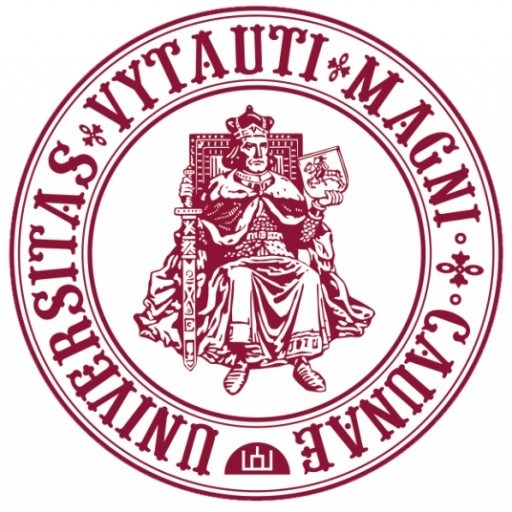Photos of university / #dehaagsehogeschool
The International and European Law Bachelor's degree program at The Hague University of Applied Sciences offers students a comprehensive and in-depth understanding of the legal frameworks that govern the international community and European Union. This program is designed for those who aspire to become legal professionals, policymakers, diplomats, or experts in international relations. Throughout the course, students will explore a wide range of topics, including international treaties, human rights law, EU law, public international law, and international dispute resolution. The curriculum combines theoretical knowledge with practical skills, emphasizing critical thinking, analytical abilities, and legal research techniques essential for operating effectively within international legal environments. Students will engage in case studies, simulations, and internships to gain real-world experience and foster a global perspective on legal issues. The program emphasizes not only understanding the law but also applying it to current global challenges such as humanitarian crises, environmental issues, and international trade disputes. Dedicated faculty members, with expertise spanning various international law disciplines, guide students through rigorous coursework and interactive seminars. Additionally, students benefit from the university’s strategic location in The Hague, often referred to as the legal capital of the world, which provides unparalleled opportunities for networking, internships, and visits to international institutions such as the International Court of Justice, the International Criminal Court, and various European Union agencies. Graduates of this program are well-equipped to pursue careers in international organizations, non-governmental organizations, government agencies, law firms specializing in international law, or continue their studies at master's level. The program’s international environment encourages multilingualism and cultural awareness, preparing students to work effectively in diverse settings. With a solid foundation in legal principles combined with practical experience, graduates will be ready to make meaningful contributions to the development and implementation of international and European legal norms.
The International and European Law program at The Hague University of Applied Sciences offers students a comprehensive and practical education in the fields of international law, European law, and related areas. This program is designed to equip students with the necessary knowledge and skills to understand complex legal frameworks that govern international relations, cross-border commerce, human rights, and European integration. Throughout the course, students will explore key legal principles, treaties, conventions, and regulations that shape the functioning of international institutions and European Union member states. The curriculum emphasizes both theoretical understanding and practical application, preparing graduates to work effectively in international legal environments, governmental agencies, international organizations, law firms, and NGOs. Students will engage in case studies, simulations, and internships to gain real-world experience. Topics covered include international dispute resolution, international humanitarian law, European Union law, constitutional law, human rights law, and trade law. The program also focuses on developing critical thinking, analytical skills, and the ability to communicate complex legal issues clearly and convincingly. With a strong emphasis on intercultural competence and multidisciplinary approaches, students are encouraged to understand the different perspectives and legal traditions that influence international and European legal systems. The program aims to foster proactive, socially responsible professionals capable of contributing to international justice, policymaking, and legal reforms. Graduates will be well-prepared to pursue careers in international courts, diplomatic missions, legal consultancy firms, or further academic research in the field of international and European law.
Program requirements for the International and European Law bachelor's degree at The Hague University of Applied Sciences typically include a combination of academic prerequisites, language proficiency standards, and other criteria aimed at ensuring students are prepared for the academic and professional challenges of the programme. Applicants are generally required to have completed secondary education equivalent to the Dutch VWO program, with a focus on subjects such as law, social sciences, or related disciplines. A strong command of the English language is essential, often demonstrated through standardized tests like the IELTS (minimum score of 6.0) or TOEFL (minimum score of 80). Additionally, candidates may need to submit a motivation letter outlining their interest in international law and their career aspirations in this field.
Admissions may also consider relevant work experience, internships, or extracurricular activities related to law or international relations. As the programme involves complex legal concepts and international case studies, applicants should possess good critical thinking, analytical skills, and an interest in global affairs. Non-native English speakers are typically required to provide proof of English proficiency if their previous education was not conducted in English. International applicants must ensure they meet visa and residency requirements applicable to students coming from abroad. It is also recommended that prospective students review the specific entry criteria published annually by The Hague University of Applied Sciences on their official admissions page for any updates or additional documents such as CVs or references.
Once admitted, students are expected to participate actively in seminars, group projects, and practical assignments that simulate real-world legal environments. The programme aims to develop legal knowledge alongside intercultural competence and practical skills such as negotiation, legal drafting, and research. No specific prior legal education is strictly required, but a background or strong interest in law, politics, or international relations can be advantageous. The university emphasizes inclusive education and supports students through academic advising and preparatory courses if needed. Successful completion of the programme typically involves passing modules, voluntary internships, and a final thesis or project demonstrating comprehensive understanding of international and European legal frameworks.
Financing for the International and European Law program at The Hague University of Applied Sciences can be secured through various channels. The university offers several scholarship opportunities for both international and domestic students, which can significantly reduce the financial burden. Students are encouraged to apply for scholarships early, as competition is high. The university provides detailed information about available grants, scholarships, and funding options on its official website.
In addition to university-specific funding, students may explore external funding sources such as government grants, international organizations, and private foundations that support legal studies. For Dutch and EU students, the Dutch government offers student loans and grants designed to support higher education. International students from outside the EU may need to seek private loans or scholarships from their home countries or international funding bodies.
The cost of living in The Hague should also be considered as part of the financing plan. Students should budget for accommodation, travel, textbooks, and daily expenses. The university offers recommendations and resources for affordable living arrangements, and some students choose to share accommodations to reduce costs.
Part-time work is another common financing option. International students with residence permits are often allowed to work up to a certain number of hours per week during the academic year. The Hague has a vibrant local economy with opportunities for students to find part-time employment in sectors such as hospitality, administration, and legal internships.
Students are advised to consult the financial aid office at The Hague University of Applied Sciences for personalized advice and assistance in exploring all possible funding routes. Early planning and diligent research can enable students to finance their studies effectively, making higher education in International and European Law accessible and affordable.
The International and European Law Bachelor's degree program at The Hague University of Applied Sciences offers students a comprehensive understanding of legal systems and frameworks within an international context. This program is designed to equip students with the knowledge and skills necessary to analyze complex legal issues that arise in international relations, trade, human rights, and European integration. Throughout the course, students delve into core topics such as international law, European Union law, human rights law, maritime law, trade law, and conflict resolution. The program emphasizes practical skills through case studies, group projects, and internships, preparing graduates for careers in international organizations, law firms, governmental agencies, or NGOs. The curriculum combines theoretical legal principles with applied practices, fostering an analytical mindset and problem-solving abilities essential for addressing contemporary international legal challenges. The teaching staff comprises experienced legal professionals and academics with expertise in their respective fields, providing students with valuable insights and mentorship. The program encourages critical thinking and intercultural understanding, reflecting the diverse and global nature of international law. Students also have opportunities to participate in moot courts, legal research projects, and international seminars, enhancing their practical experience and professional network. Upon graduation, students receive a Bachelor's degree, qualifying them for further specialization or entry into the legal profession. The program is tailored to meet international standards of legal education, ensuring graduates are competitive in the global legal market. The Hague’s position as the world’s legal capital offers unique opportunities for students to engage with international legal institutions such as The International Court of Justice, The Hague Tribunal, and various international arbitration centers, providing valuable real-world experience and networking opportunities. The program typically attracts students from around the world who aim to develop a career in international law, European policy, or related fields, fostering a rich multicultural learning environment. Overall, the International and European Law program at The Hague University prepares students to become responsible global citizens and skilled legal professionals capable of contributing to the development and enforcement of international law.









